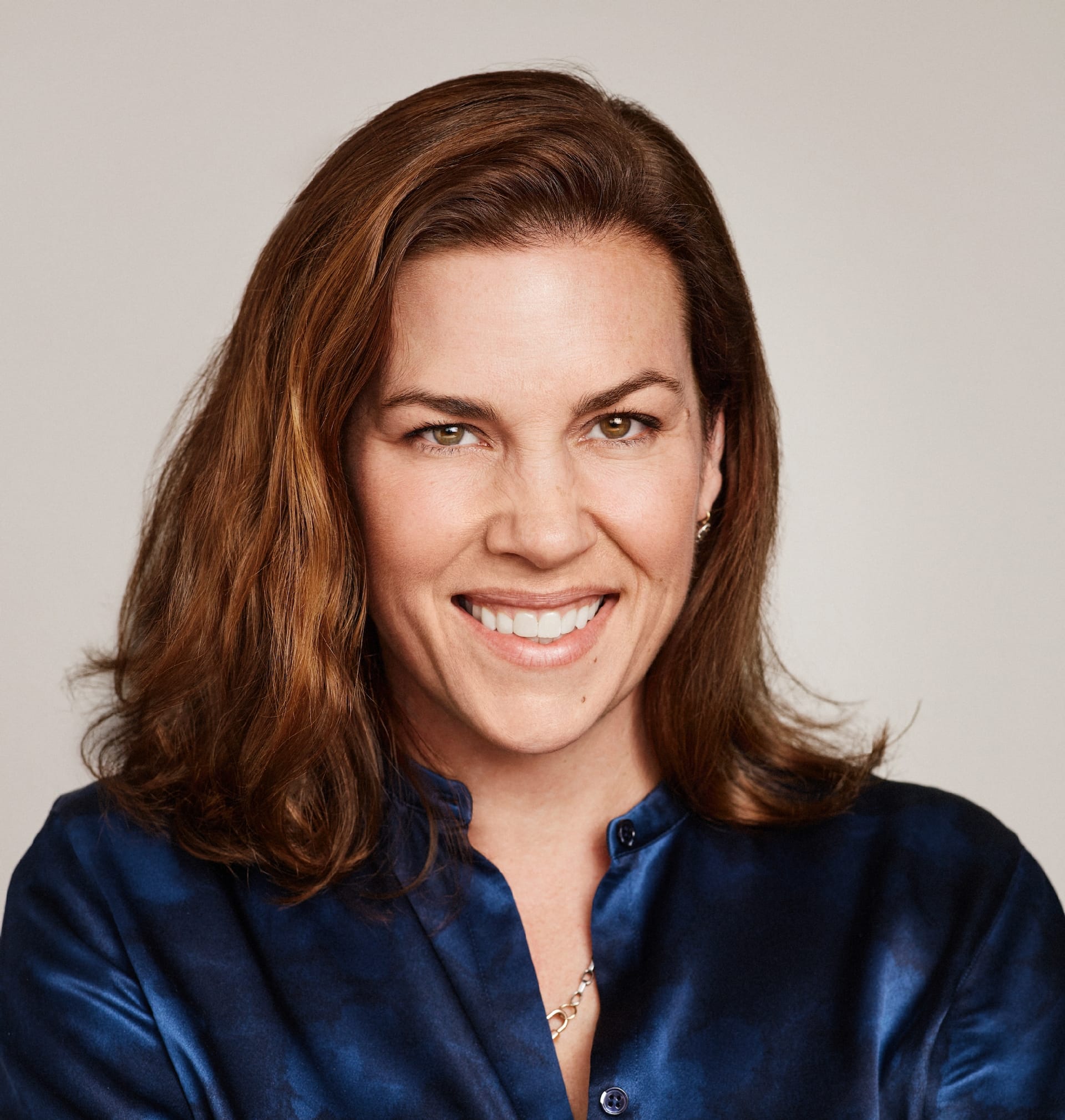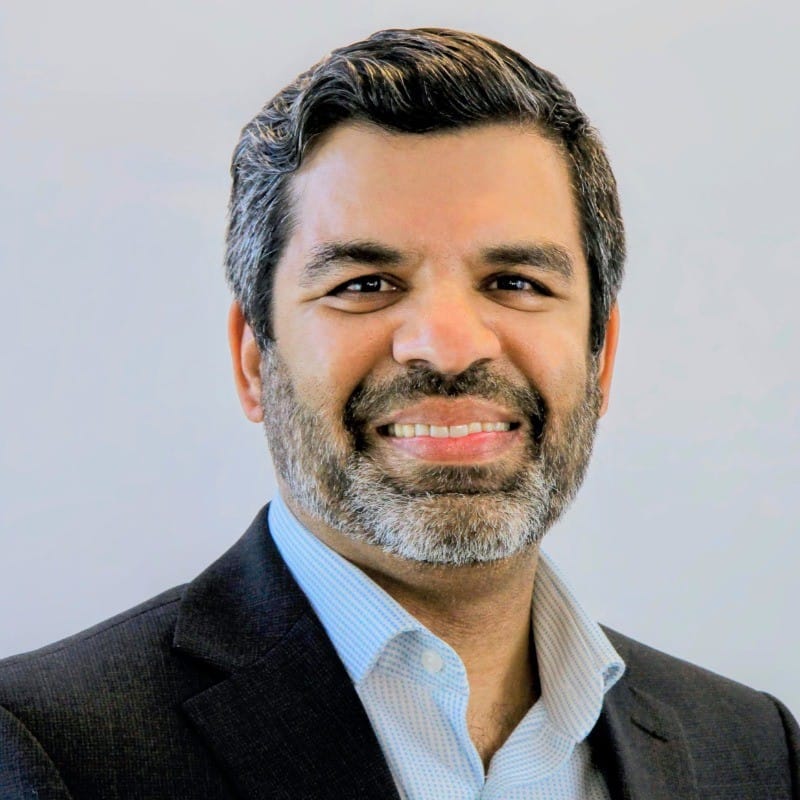There’s heaps of advice out there on how to prepare for interviewing a candidate — tips for structuring the process, thoughts on the right set of questions to ask, and advice on distilling down the feedback across the hiring panel. It is an undoubtedly essential process to get right.
But, oddly, when it comes time to pick up the phone to call up references, far too many hiring managers treat this as a check-the-box activity, farming the process out to their recruiting partner — or perhaps even skipping over it entirely when they’re in a rush.
There are plenty of well-reasoned theories for why folks take a haphazard approach here. Reference checks are the very last step in most interview loops, likely after rounds of time-sucking interviews, before the rush of making an offer. After a painstaking hiring process, sorting through dozens (or even hundreds) of options, there’s a candidate who the hiring panel is excited about. So folks go into the reference check looking to just confirm a decision they’ve already mostly made — after all, a negative reference could derail the entire process, and send it back to square one. Somewhat subconsciously, hiring managers ask soft-balled questions of the reference, who delivers the perfunctory, expected answers, and the cycle repeats until the offer is made.
When was the last time you heard something on a reference call that stopped you in your tracks or truly changed your mind?
Alternatively, even hiring managers who go into the reference phase with their minds not fully made up may still find that the process leaves much to be desired. These references were probably hand-picked by the candidate, and aren’t likely to be fully candid while parroting back all the strengths the candidate already told you about at length during the interview process. The hiring manager learns very little that’s new, and the whole reference process feels like wasted time.
After a few hiring cycles where reference calls play out this way, it’s not surprising that hiring managers start to write them off. But it’s an enormous mistake.
When approached with craft and care, reference calls can be a massively influential piece of the hiring decision. After all, you’ve spent — at maximum — a couple of hours with the candidate (along with perhaps reviewing some work samples or a practical exercise). Here’s your chance to speak to folks who have spent months, or even years, working closely with the candidate every single day. They’ve seen them at their absolute best — and possibly at their worst, too.
To help add more rigor to references, we put out a call to startup leaders and operators in our community for their favorite questions to ask during reference calls, assembling our favorites into a comprehensive guide for hiring managers.
Across the board, the experienced leaders we’ve spoken to agree that reference checks are a massively underrated component of the hiring process. It’s an essential tool in a leader’s tool belt — when approached the right way. The questions that follow skip the softballs and dig beneath the surface to uncover a more holistic picture of the candidate you’re considering hiring.
Looking to quickly access all the questions (plus some extra bonus questions)? We’ve assembled them into a handy guide for your next reference call Download the PDF below.
45 Questions for Reference Calls
It’s a theme that’s also cropped up again and again on our In Depth podcast, and we’ve included advice from folks we’ve interviewed like former Stripe COO Claire Hughes Johnson, Lattice founder Jack Altman, and Thumbtack co-founder and CEO Marco Zappacosta.
For example, Zappacosta has a well-honed playbook for hiring executive candidates, which involves talking to not two or three references but 10 to 20 people that he draws from various stages of the leader’s career, aiming to spend as much time on interviews as he does with references. (So if he’s spent 15 hours with a candidate, he’ll spend the same amount of time backchanneling.)
His number one piece of advice? Don’t try to boil the ocean here. “Get really clear with yourself about what you’re trying to understand. By having a narrow focus about the experience or skills that you want this leader to have, you can structure your reference call to ask about those questions directly,” says Zappacosta.
There’s nothing worse than asking, “What did you think about this candidate?” or “Were they any good?” Of course, a reference by and large is going to say yes. They know and like the candidate more than they know and like you.
“Interestingly, over time, I have less conviction in the ability of an interview process to assess talent,” says Zappacosta. “Interviews or practical tests are often imperfect, they’re contrived, and they’re stressful in a particular way that regular work is not stressful. It’s an attempt at auditing someone’s fullness in a small number of hours — and that’s imprecise. So I put more weight on references as a way of auditing technical talent. When in doubt, when we feel a little hesitant, but the references say that this person was really strong in that particular skill, I trust the reference.”
But your ability to trust that reference hinges on putting in the detective legwork that will help you build that more holistic picture of a candidate. And as with most things in life, the follow-up is everything here. Many of these questions have a set of detailed secondary queries, helping you to drill down even further and uncover what’s not being said. With that framing in mind, let’s dive in.
QUESTIONS FOR ASSESSING HOW THEY STACK UP
1. How does this person compare to the best you’ve ever seen in the role?
While this question is asking about the candidate’s chops, it’s also laying the groundwork for how much stock to take in the reference, too. “I first want to get a sense if the reference is a reliable judge by asking how they've worked both with this individual, as well as others in similar roles. If they've only worked with one Head of RevOps, then asking them to compare to others won't yield great data,” says Sean Twersky, Head of Business Operations at EvenUp.
Similarly, Stacy Tumarkin, CFO at Kubecost, asks: How many people have you worked with in [candidate’s] role/level? How would you rank [candidate] among their peers?
And Nadia Singer, Chief People Officer at Figma, prefers this variation: What is something that [candidate] is better at than anyone else you've worked with in this role?
2. On a scale of 1 - 100, how would you rank this person?
Asking references to rate a candidate on a scale of 1-10 is a bit more common, but Twersky makes the case for a wider scale. “I’ve found 1-100 more insightful as you'll usually get a low 90's response, allowing you to follow up with ‘Ok, so why not rate 100?’”
While he’s looking for a high quantitative ranking, Twersky is also trying to get a feel for whether the reference is jumping out of their seat to tell him about the candidate. “Are they cutting me off to tell me how great someone is? I was doing a reference call for a Director of Finance and the reference interrupted me and said, ‘Look, I see where you're going. Let me be straight, [candidate] is the best strategic finance person I have ever worked with. She doesn't build the prettiest models but your team will love her and she'll be a truly value-add thought partner to you. Stop wasting your time and hire her.’ And he was right — she was one of the best hires I ever made.”
3. On a scale of 1-10 (10 being the highest), how do you rate XYZ on [specific trait or ability]?
Jason Yoong (former Head of Program at Amazon) sticks with the 1-10 scale — but deploys it in a very particular way. “I believe the 1-10 rating scale question is effective when used with two intentional follow-ups.”
What is the reason you did not rate XYZ (insert a number that is 1-2 points higher)? “This allows you to dive deep into the why as people share interesting reasons or past experiences, along with areas of improvement.”
What is the reason you did not rate XYZ (insert a number that is 1-2 points lower)? “This gets to the candidate’s superpower.”
4. Can you tell me about a project that would have failed without [candidate]?
“This question gives me more insight into the candidate’s perceived strengths as well as how much (or how little) initiative they take,” says Auzita Irani, Research Manager at Airbnb.

Along similar lines, to get past the surface level on a reference call, Vishal Kapoor (Senior Director of Product Management at Shipt) suggests: What is your most memorable experience working with this candidate?
5. What haven’t I asked that, if you were me, you would want to know about this person?
While this might seem like a natural question to end the call with, Marco Zappacosta actually recommends asking it towards the middle of the conversation in order to unlock any unexpected rabbit holes. “This question gives references the free license to say what they’ve wanted to share,” he says.
QUESTIONS FOR PROBING GROWTH MINDSET
6. Would you rehire this person for almost any role?
Loom’s COO Anique Drumright talked at length about her approach to reference checks on the In Depth podcast and shared that this is one of her favorite questions to lean on. “Because there are certain people that you truly would rehire in just about any capacity. But often in response to this question, you’ll hear many caveats: ‘Well, it would really depend on what the role is — it’d have to be this specific thing.’ That’s an indicator to me that this candidate is not as flexible or as much as a generalist that I need right now,” explained Drumright.
Across the board, with her full slate of questions, Drumright underlines that she’s acutely listening for a particular flavor of zest and gusto.
I'm really listening for how enthusiastic or passionate they are when they talk about the candidate. There are some people on my team that I can’t wait for the day I get to give a reference for and talk about how amazing they are for 30 minutes.
As Upstart founder and CEO Dave Girouard told us, with this question (and just about every one on this list), it’s critical to be blunt with your follow-up.
"Most people don't want to lie. I know when I've given references for people who I had mixed opinions about, I always told myself, 'I'm not going to lie, but if they don't ask the right questions, that's their problem,'" says Girouard. To get around that tendency when you're the one dialing up references, sometimes you have to be blunter. "One of my favorites is, 'Would you hire this person without question again?' If the person says, 'Yes, no matter what, I would hire this person again,' I would say, 'Great. That's a good answer. Why haven't you?' If they answer with some reservations, then you can ask, 'What are the circumstances where you would, and what are the ones where you wouldn't?"

7. What was an experience where you saw the candidate grow?
Here, Vishal Kapoor is looking for precise examples of how the candidate evolved, and he always follows up with: What might still be the candidate's growth areas?
8. Can you share an experience where [candidate] really blew your mind?
Subscript’s founder and CEO Sidharth Kakkar likes this twist on the question. “You get to see if they can come up with anything, and you can evaluate if it is really truly impressive. The best candidates spike very high in some things, and you can get confirmation that this person really is spectacular at something.”
9. [Candidate] said one of the things they struggled with when they were at the company was [weakness]. Do you recall cases where that got them into trouble?
Asking about weaknesses in a reference call can be tricky — after all, the reference is likely rooting for the candidate and trying to present them in the most positive light. So Subscript’s Sidharth Kakkar starts the question off by specifically mentioning something that came directly from the candidate themself. “This gives the referencer permission to speak about a weakness — since the candidate already brought it up — and then you can figure out exactly how problematic that weakness was.”
Another approach here, from Marco Zappacosta, is to flag feedback from other references, and ask folks to react to it, giving them permission to be honest about any red flags: “I’ve talked to three other members of the executive team at this company and they all called out this issue. What’s your read on that?”
10. Do you have any examples of times when the candidate demonstrated grit? Not giving up?
Jad Esber (co-founder and CEO of koodos labs) recommends this question to dig beyond the bullet points on a candidate’s resume. They might be a performance marketing wizard, but what are moments or stories that might not be adequately captured on a resume?
QUESTIONS ABOUT ROLE FIT
11. Explain the role at length and what success looks like in the first year. Do you think that [candidate] will thrive in that position?
Looking back on some of the mis-hires she’s made over the years — and how she could have approached the reference call differently — former Stripe COO-turned-advisor Claire Hughes Johnson flags a common bug: skipping over some essential context setting.
Titles don’t tell you everything. I’ve made the mistake of going into a reference call and assuming that a Head of Sales role is understandable enough and I don’t need to describe my version of it to the reference.
As she told us on the In Depth podcast: “I should have given the current context of what success looks like and what I believe to be the capabilities that the candidate needs to spike. Give the reference enough flavor and ask them to react. Where I’ve failed in the past is assuming they would intuitively understand what was needed in the role,” Hughes Johnson says.

12. Tell me about a time when you saw this leader build a new team. They said they did it at the company. Can you tell me what you observed?
Another common mistake that Thumbtack CEO Marco Zappacosta flags for folks is being too wide-reaching in your reference calls. Instead of trying to learn everything possible about the candidate, choose a much narrower scope.
You can swap the example of building a new team that Zappacosta provides for any tangible skill or achievement that’s most important in your hiring search — the point here is to get precise. “When you ask somebody a specific question, not just general impressions, people typically let their guard down and share more details. Listen super carefully to the language people use, because it's sort of a coded conversation.”
13. If you were to design an ideal role for this person, what would it be?
First Round Partner Brett Berson likes to give the reference plenty of space to color outside of the lines with this question.
Stacy Tumarkin’s approach to this question gives the reference ample opportunity to talk up the candidate’s superpowers, while also nudging them to point to where there might be opportunities for growth: In which kinds of projects or work is [candidate] most effective? Which situations are more challenging?
14. What was something unique about this candidate's team versus other teams?
Vishal Kapoor suggests asking this question for any candidates who are applying for people manager roles.

QUESTIONS ABOUT REAL-LIFE WORK SCENARIOS
15. Can you tell me about a time that the candidate missed a deadline and how they communicated that to you and the broader team?
"I assume that a reference will be largely positive, so I like to use the time during a reference call to learn about how the candidate handled situations that did not go so great. It helps me glean insights into how working with the candidate would be,” says Kanan Kapadia, co-founder of the Abstract Group.
16. Can you tell me about a time when you had to provide critical feedback to [candidate]? How did they receive it and what actionable changes did you see after the feedback was delivered?
Another suggestion from Kapadia, being able to take feedback well is essential for any startup employee up and down the ladder.
17. How does this person deal with differences in opinion?
Connor Fitzgerald, Director of Business Development at Coinstar, makes sure to touch on this question because, as he tells it, the majority of stress in the office can often be boiled down to well-meaning folks disagreeing. Make sure to probe the reference to provide real-world examples here, rather than just being satisfied with a hand-wavy answer.
18. Can you share someone who maybe doesn’t necessarily get along with [candidate] as well as you do? Why do you think they don’t mesh well?
Not everyone will be universally liked across the company — and that’s not even necessarily a bad thing. Brett Berson leans on this question to dive deeper into where the candidate might experience points of friction if they were to come on board.
19. What was [candidate’s] reputation within the organization or department? Among customers?
Here, Stacy Tumarkin is looking to expand a bit beyond the immediate team — how does the candidate wield influence across the org? How do they approach building and maintaining cross-functional relationships?

QUESTIONS FOR SETTING UP THE MANAGER / DIRECT REPORT RELATIONSHIP
20. What "special treatment" helps [candidate] do their best work?
This question from Brie Wolfson (a former marketing leader at Stripe and Figma) harkens back to what was once one of her least favorite bits of leadership advice that she came around to eventually.
I had a soccer coach in college who would always say, “There's nothing more unfair than to treat everyone the same.” It drove me nuts then, but now that I'm a manager, I understand what she meant.
21. How well do you think [candidate] will do with my management style?
“Be aware that most references are cautious to say anything that will cause the individual to lose their offer. So use this opportunity to have an honest discussion about the work the candidate is about to embark on,” says Richard Cho, Head of People at Alchemy. “Be specific about your environment and the values and characteristics that allow for anyone to succeed.” He shares a few examples of how folks might frame this question:
- “I'm a very hands-off manager, to the point of benign negligence...I need someone to 'manage me' as I need to juggle priorities daily. How do you think the candidate will do with that management style?”
- “Our environment rewards action-oriented people. How comfortable is [candidate] with shipping deliverables quickly and iterating on the work over time?”
- “How does this person do with multiple urgent deadlines that converge and will require the individual to self-prioritize?”
Don't be afraid of painting such an honest picture to the reference that you are worried about the candidate declining the offer — it's a blessing in disguise.
22. What causes the candidate stress or friction?
“My reference questions are all variations of the first 1:1 questions I have with my direct reports. My goal for reference calls is to understand how to be the best manager and leader to my new hire, rather than find reasons to not work with them,” says Danielle Leong, VP of Engineering at FireHydrant.
“By asking about stress, it places the reference in a more contemplative mood, rather than a selling mode. I find I get very honest questions about what the candidate values, how they react to stressful situations, and what can be done to mitigate it.”
23. How do you think I can best support this person to make sure they thrive here?
"Especially if this is someone who will report to me, I always like to ask this question. It's a nice way to frame up things that their manager might have seen them struggle with in the past — and to just get some straight-up pointers from another manager. This question has been huge for building trust with new reports, as well,” says Sara Caldwell, VP of Customer Experience at Dovetail.
24. How did you build trust with this person?
“Not only is it a positive signal about me to the reference (who most certainly will tell the candidate about how well this call went), it’s also a genuine question that I want to know more about. What was their past management experience like? What sort of potential landmines are in their past? How can I best navigate these?” says Danielle Leong. “Since we're an early-stage startup and we all work so closely together, these are important pieces of information I'll need to understand how best to work together and mitigate any issues quickly.”

25. If you heard in three months that this person was no longer working at our company, why do you think they would be gone?
“I always ask this question because it causes people to stop and think, and it often provides information that didn't come up in any of the other questions I ask. The answers vary — sometimes the references focus on what might drive a person to quit and others talk about what sort of situation would make someone fail to do the job well. But every answer I've gotten has helped us better prepare to have the candidate join our team," says Margie Mathewson, SVP of Business Operations at Ossium Health.
WRAPPING UP: PUT IN THE WORK
With a couple of reference calls under your belt — all ringing endorsements of your top candidate most likely — it might be tempting to put the phone down and start preparing the offer letter. But this isn’t the time to get complacent — particularly if you’re hiring for a high-impact leadership role. As Jack Altman told us when he joined the In Depth podcast, he often ends his reference calls by trying to get more references — with a specific mandate.
“The questions I ask are, ‘If I want to be convinced that this is the right person for this job, who else do you think I should talk to? And who should I go talk to that’s going to tell me that this might be a mistake?” says Altman.
Don't be scared to keep asking for more names. Any one reference is a little bit of a tenuous signal, but you start to get six, seven, eight people who know this person and have worked with this person for years, you can get a really strong hiring signal.
Often, hiring managers are hesitant to keep asking for more and don’t want to come across like they’re digging for dirt. But Marco Zappacosta backs up Altman’s approach. “Every executive who has had a long, storied career will have something that they wish they could change. I'm not going to ding somebody for those things. But I want to understand the range of the spectrum from the best to the worst,” he says.
And to take things even further with executive candidates, he’s added on an extra layer by presenting the results of the references on a final call with the candidate. (To put candidates more at ease — and make the evaluation bi-directional — Zappacosta has shared a copy of his own recent 360-degree review results in the past.)
“I’ll tell them that I spoke with people across different companies and domains, and we go through each theme for areas of excellence and improvement. Take note that you’ll get a wider band of feedback here than what was discussed in any interview,” says Zappacosta. “My question for nearly each section is: ‘Why do you think I heard that?’ I’m listening as much for the answer as I am for how the candidate responds. Are they defensive and try to explain away the observation? Or do they say something like, ‘This is what I've been working on for a long time. I'm not a natural public speaker. And, as my role has grown, that has become more of a necessity. I’m more comfortable in small groups, but I’m taking a more active role in All Hands and sign up for a few conferences a year.’”
